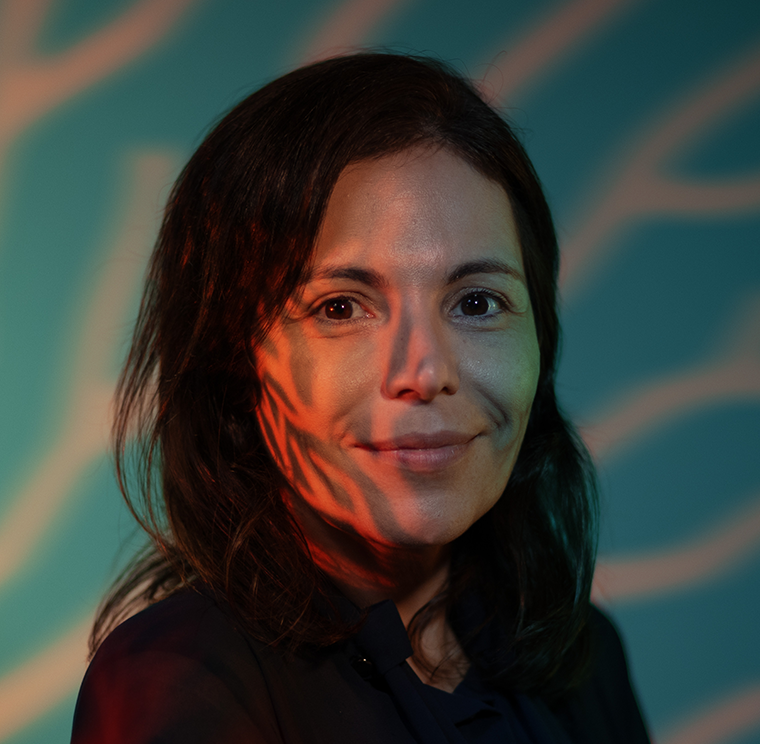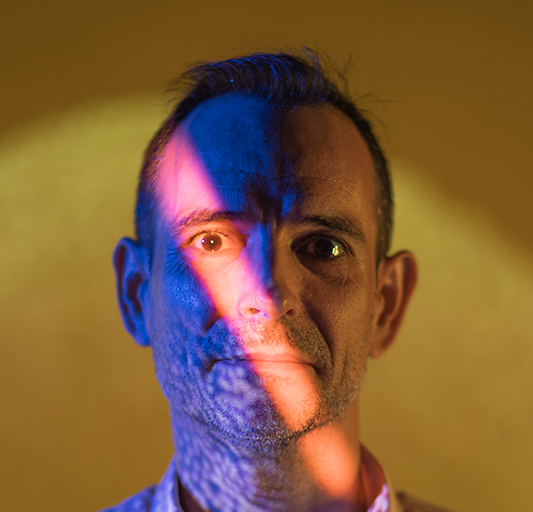PEWEE KOLUBAH
on a
mission
to make electricity accessible to all.
Pewee Kolubah grew up in Liberia without access to electricity, spending his formative school years studying by candlelight and kerosene lamp. Now a Ph.D. student at King Abdullah University of Science and Technology (KAUST), he is pioneering technology to ensure children in Liberia and across the developing world are not left in darkness as they pursue their dreams.
“I’m on a mission to make electricity accessible to everyone,” Kolubah says, before explaining that his solution not only generates enough power to light a bulb but also removes pollutants from wastewater in the process, addressing another key concern in Africa. “That gives them a future, a chance to compete in our modern society.”
If we provide electricity access to these underdeveloped communities, children can study at night and families can live more safely.”
Pewee Kolubah
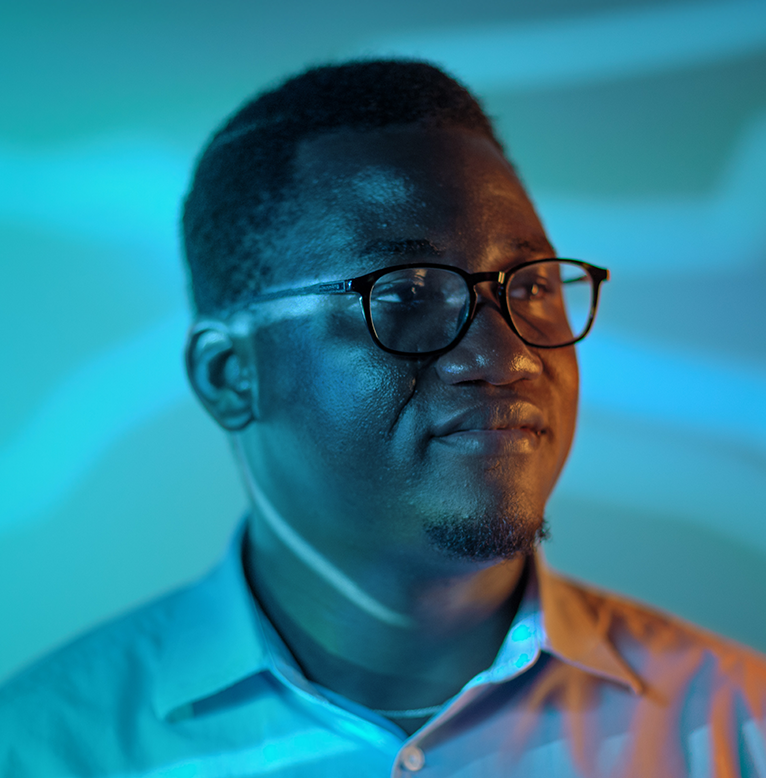
At KAUST, the Ph.D. student in chemical engineering works with microbial fuel cells. These small devices use wastewater to generate power. When the water passes through, it interacts with an ultra-thin material called MXene that helps microorganisms release more electricity, which can then be captured to power simple household devices.
“The technology can be scaled up to have a centralized power production unit that can distribute to local homes,” Kolubah says. “Or, families can acquire these devices and set them up in their homes in order to generate their own electricity using wastewater.”
Electric lighting access is more than a convenience, he adds. It is about health and safety. “Studying by candlelight often leads to eye problems, because of constant exposure to burning fire. Long-term exposure causes damage to eyesight. There is also the danger of fire accidents in the home, which can cause severe damage or even death. If we provide electricity access to these underdeveloped communities, children can study at night and families can live more safely.”
Kolubah believes the technology could be scaled up soon, bringing both electricity and cleaner water to millions of people who still lack access.
WATCH VIDEO
Pewee Kolubah
Coming to KAUST
Going from studying by candlelight to earning a master’s and completing a Ph.D. at one of the world’s leading technological universities is not easy, Kolubah says, but it is possible with the right incentives and a good attitude.
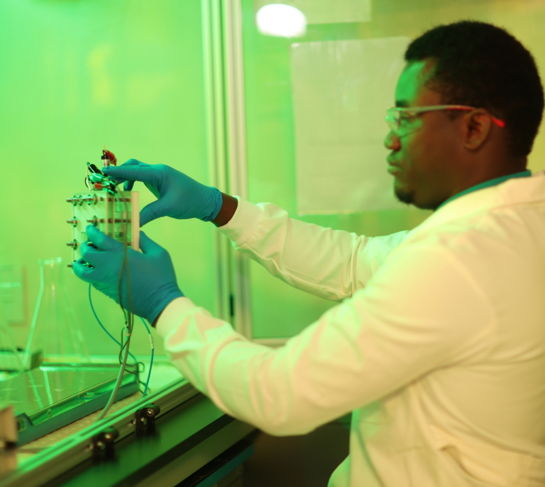
“It’s all about resilience and ambition. My parents are not educated, but they always pushed me to go beyond boundaries and strive for the best, no matter the conditions. Despite challenges, I kept pursuing my dreams and graduated with grades high enough to earn a Chinese government scholarship.
Through resilience, I graduated at the top of my class in China.”
That same drive to push beyond limits guided his next step. While studying chemical engineering at Tianjin University, a professor told the young scholar about the opportunities at KAUST. Kolubah recalls how his professor had often praised KAUST, its world-class facilities, and the freedom it allowed students to shape their research. She encouraged him to apply. “I Googled ‘KAUST’ and confirmed these amazing things online. I decided to give it a try, and today, I’m here.”
Now, Kolubah works in Professor Pedro Castaño’s laboratory, mentored by Dr. Hend Mohamed, and collaborates with researchers from around the world on matters he cares deeply about.
“I always wanted to do something in sustainability and electricity access in Africa,” Kolubah says. “When I joined Professor Castaño’s group, I pitched the idea. Instead of shutting it down, he was open — willing to establish a new research line, providing mentorship and resources to get it rolling.”
Kolubah’s research not only promises to bring light to families across the developing world. It also holds valuable industrial applications, purifying wastewater streams and generating electricity for a circular economy.
“One of our targets for this technology is making wastewater treatment plants self-efficient. Current technologies for treating wastewater are very energy intensive. Our solution, if it’s integrated into the plant, helps reduce the energy required for treatment. The plant’s wastewater can be fed into this unit, compensating for part of the energy demand.”
Meaningful impact
A small amount of electricity can go a long way for those who lack access. In Liberia, Kolubah notes, even the ability to recharge a smartphone at home can make a tremendous difference. Families would no longer need to travel to centralized charging stations, and with that comes a greater ability to stay personally connected and culturally aware.
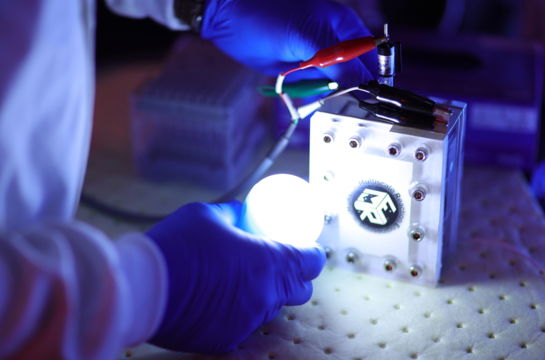
For children growing up in the same circumstances he once faced, this technology promises to replace the candles and kerosene lamps, bringing light to the darkness. “By using just a small amount of wastewater, we can generate enough power to help light up a home’s LED bulbs for an entire night.”
Upon completing his Ph.D. in December 2025, Kolubah hopes to secure a postdoctoral position in the United States. After that, he aims to return to Liberia to teach and continue the research he began at KAUST in a part of the world that can most benefit from it
“I want to give back to my country,” Kolubah says, his expression carrying a longing for home and hope for the future. “It would be special to return to where I grew up and have the opportunity to support my local community.”
Learn more about KAUST and our mission-driven research
KAUST shall be a beacon for peace, hope and reconciliation, and shall serve the people of the Kingdom and the world.
King Abdullah bin Abdulaziz Al Saud, 1924 – 2015
Email: global.pr@kaust.edu.sa
Mailing address:
4700 King Abdullah University of Science and Technology
Thuwal 23955-6900
Kingdom of Saudi Arabia
FOLLOW US
© 2025 King Abdullah University of Science and Technology. All rights reserved.


